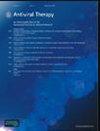An unexpected adverse effect: Elvitegravir/cobicistat/emtricitabine/tenofovir alafenamide–induced cholestasis
IF 2.3
4区 医学
Q4 INFECTIOUS DISEASES
引用次数: 2
Abstract
The morbidity and mortality of people living with HIV (PLWH) has decreased markedly after the introduction of highly effective antiretroviral therapy (ART). The safety profile of drugs used for HIV has improved over time, and nowadays, co-formulated combinations with excellent tolerability are available. One of the most commonly used is elvitegravir/cobicistat/emtricitabine/tenofovir alafenamide (EVG/COBI/FTC/TAF) due to its effectiveness in viral suppression and good tolerability [1-2]. PLWH are at greater risk of suffering hepatobiliary complications, not only caused by opportunistic infections or AIDS cholangiopathy related to advanced immunosuppression but also due to drug-induced hepatotoxicity, use of alcohol or other substances, coinfections with hepatitis virus or liver steatosis [3]. This article describes a case of a patient who developed a severe increase in cholestasis parameters after starting EVG/COBI/FTC/TAF regimen, probably related to integrase strand transfer inhibitor (InSTI). Liver enzyme elevation during InSTI-based therapy is an unusual finding. To our knowledge, this is the first report in the literature of EVG/COBI/FTC/TAF-associated cholestasis. The article tries to generate knowledge in order to strengthen pharmacovigilance of this adverse effect and reviews the available data on cholestasis in PLWH.意想不到的不良反应:依维替韦/可比司他/恩曲他滨/替诺福韦-阿拉芬胺诱导的胆汁淤积
采用高效抗逆转录病毒疗法后,艾滋病毒感染者的发病率和死亡率显著下降。随着时间的推移,用于治疗艾滋病毒的药物的安全性有所改善,如今,可以获得具有良好耐受性的联合制剂。最常用的药物之一是艾维替拉韦/钴司他韦/恩曲他滨/替诺福韦-阿拉芬酰胺(EVG/COBI/FFTC/TAF),因为它对病毒的抑制作用和良好的耐受性[1-2]。PLWH患肝胆并发症的风险更大,这不仅是由机会性感染或与晚期免疫抑制相关的艾滋病胆道病引起的,也是由药物诱导的肝毒性、使用酒精或其他物质、肝炎病毒或肝脂肪变性共同感染引起的[3]。本文描述了一例患者在开始EVG/COBI/FTC/TAF方案后胆汁淤积参数严重增加,可能与整合酶链转移抑制剂(InSTI)有关。InSTI治疗期间肝酶升高是一个不寻常的发现。据我们所知,这是EVG/COBI/FTC/TAF相关胆汁淤积的文献中的第一篇报道。本文试图积累知识,以加强对这种不良反应的药物警惕,并回顾了PLWH胆汁淤积的现有数据。
本文章由计算机程序翻译,如有差异,请以英文原文为准。
求助全文
约1分钟内获得全文
求助全文
来源期刊

Antiviral Therapy
医学-病毒学
CiteScore
2.60
自引率
8.30%
发文量
35
审稿时长
4-8 weeks
期刊介绍:
Antiviral Therapy (an official publication of the International Society of Antiviral Research) is an international, peer-reviewed journal devoted to publishing articles on the clinical development and use of antiviral agents and vaccines, and the treatment of all viral diseases. Antiviral Therapy is one of the leading journals in virology and infectious diseases.
The journal is comprehensive, and publishes articles concerning all clinical aspects of antiviral therapy. It features editorials, original research papers, specially commissioned review articles, letters and book reviews. The journal is aimed at physicians and specialists interested in clinical and basic research.
 求助内容:
求助内容: 应助结果提醒方式:
应助结果提醒方式:


